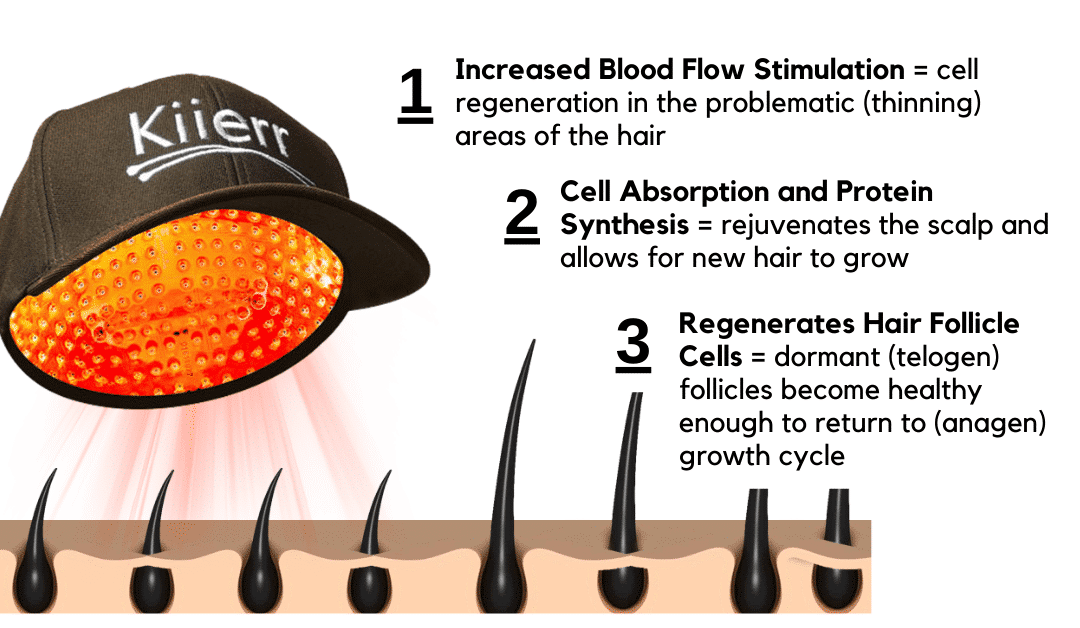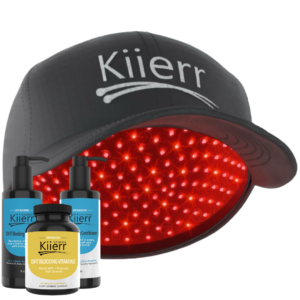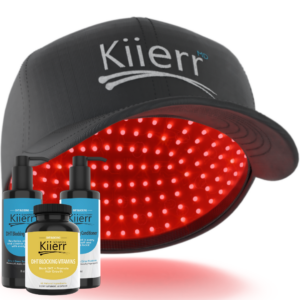Table of Contents
- 1
- 2 Do Laser Caps Work For Hair Loss?
- 3
- 4
- 5 Laser Caps Use Low Level Light Therapy(LLLT)
- 6
- 7 LLLT Is Continues To Grow In Popularity
- 8 How do Laser Hair Caps Work?
- 9 Laser Cap Treatment Benefits
- 10 Hair Growing Laser Cap and FDA Clearance
- 11 Who is an Ideal Candidate for Laser Hair Growth Cap?
- 12 How Soon Are Results From Laser Caps Seen?
- 13 Laser Cap Reviews
- 14 Kiierr Laser Cap for Hair Growth Specifications
- 15 Summary: Do Laser Hair Caps Work for Hair Loss? Yes.
- 16 Additional Laser Cap Clinical Studies Further Proof They Do Work (for both females & males)
- 17 Laser Cap FAQs
- 18 Do laser caps really work?
- 19 Are laser hair caps safe?
- 20 Does the laser cap regrow hair?
- 21 Can hair grow back after thinning?
Do Laser Caps Work For Hair Loss?
According to Medlineplus.gov U.S. National Library Of Medicine, androgenetic alopecia (AGA), is a frequent cause of hair loss in both men and women. This form of hair loss affects an estimated 50 million men and 30 million women in the United States. Androgenetic alopecia can start as early as a person’s teens and risk increases with age. With this statistic, it should come as no surprise that doctors are looking for new ways to overcome baldness and increase hair growth. So if you’re wondering if laser caps really work then read on.
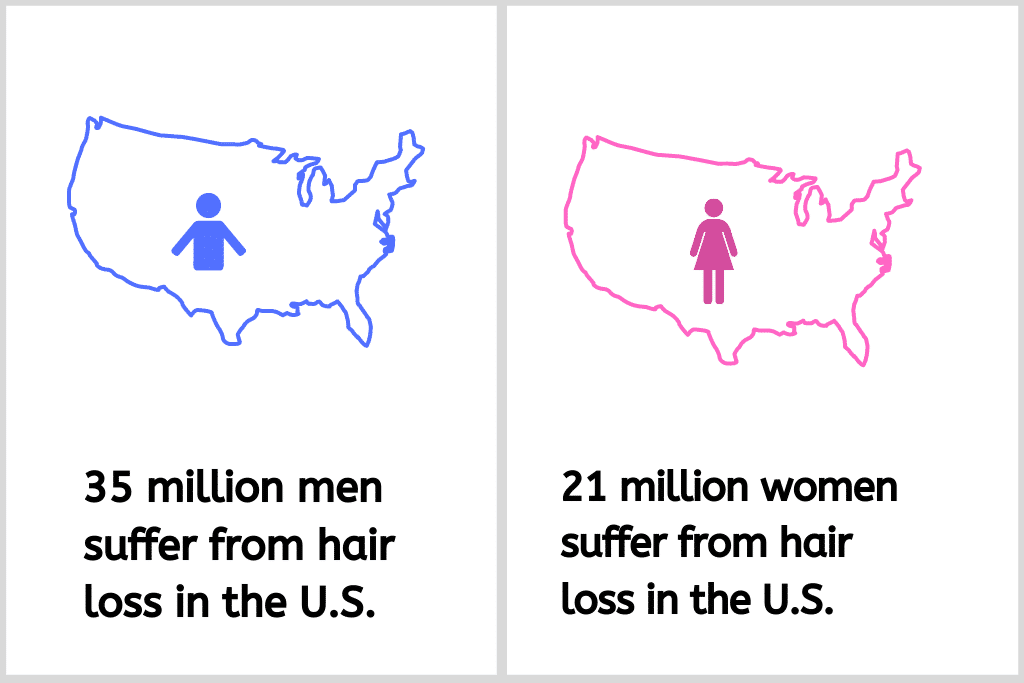
With passing time comes the evolution of technology. Therefore, medical professionals and scientists have found the precise technology that has been proven to regrow hair on the scalps of men and women. This incredible technology is known as low level light therapy (LLLT).
Low level light therapy has evolved to be used in laser hair caps to treat hair loss individuals. In recent years, there’s strong evidence (like this published medical study) that addresses the question, “Do Laser Caps Work for Hair Regrowth?”. It is the backing of laser hair growth and in order to understand how laser caps utilize this technology, we need understand what LLLT is.
Laser Caps Use Low Level Light Therapy(LLLT)

Low-level laser light therapy (LLLT) was discovered in the 1960s. Endre Mester, a Hungarian physician, started a series of experiments on mice while utilizing this technology. The mice were shaved and the experiments were intended to detect if the lasers caused cancer in animals. Mester’s findings showed that laser therapy did not cause cancer. Instead, it produced new hair growth around the shaved areas of the mice.
Low-level laser therapy (LLLT), is also known as cold laser therapy, photobiomodulation, low-intensity light therapy, and soft laser therapy. LLLT is a form of therapy that applies low-level lasers or light-emitting diodes (LEDs) to the surface of the body. Devices that utilize this powerful technology are known as laser caps, and are also referred to as cold lasers, because they don’t actually produce heat. This means it is considered a non-invasive, pain-free, hair growth treatment option.
The scientific concept for LLLT is that light emitted from the laser stimulates the growth of hair and reduces hair loss. It is claimed that the application of low-power lasers stimulates and enhances cell function. This process, called photobiomodulation, occurs when laser light is absorbed by cells and stimulates their metabolism and protein synthesis. Studies like this one have also confirmed that PW LLLT treatments have excellent pain-relieving & wound healing properties, as well as the ability to improve the functioning of various cells.
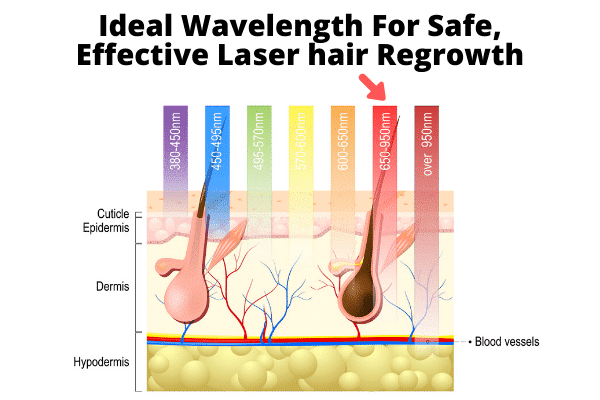
LLLT uses laser or light energy below a specific energy threshold and within a specific wavelength to stimulate skin tissue. Laser light therapy stimulates the re-entrance of the anagen phase of the hair growth cycle in hair follicles that are currently in the telogen phase.
Our Kiierr laser caps has been calibrated to emit a 650 nm wavelength, which has been clinically proven to aid in the promotion of hair growth. One thing to note is that the results do not happen overnight and can take time, so it’s important to be patient. We don’t lose all of our hair overnight, so it’s imperative that you use the device consistently and for the full seven months. It’s not uncommon for some users to observe regrowth after only a couple months of use.
LLLT Is Continues To Grow In Popularity
This technology was once only used for chemotherapy-induced hair loss. LLLT is a popular treatment for those undergoing genetically or age induced hair loss. The low level light therapy method utilizes photons, which are irradiated into scalp tissues and absorbed by weak cells in order to encourage hair growth. This also results in increased blood flow to the scalp which in turn increases growth to the hair follicles.
The procedure is a non-invasive and non-chemical option for individuals battling hair loss. It proves to be a much better alternative than invasive treatments like hair transplants that take place in clinics. Low level laser therapy is an effective hair growth solution that surpasses the success of topical treatments and supplements on the market today. The technology is an effortless way to bring back your hair follicles to their thickest and healthiest stage.
In this great technological revolution, hair growth technology has gone above and beyond to ensure your hair has the chance to live again. Today, this technology has worked its way into the devices designed for at home use. These devices are known as FDA-Cleared Laser Caps.
Read More: Everything You Need to Know About LLLT
How do Laser Hair Caps Work?
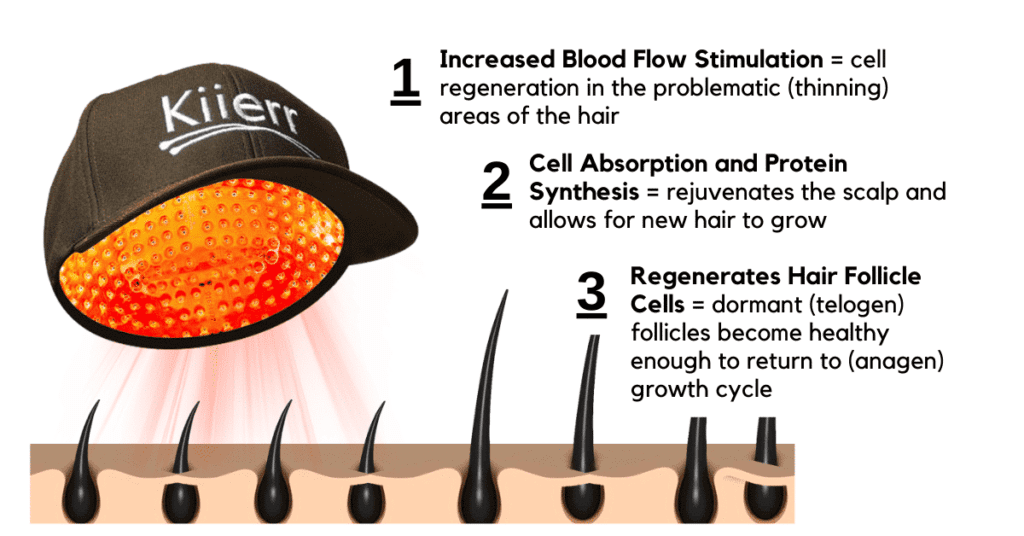
So, how does a laser cap work? First, laser caps emit low-level light therapy (LLLT), also known as cold laser therapy treatment into the skin tissue of the scalp. This LLLT therapy treatment is used to improve cellular respiration and function by stimulating blood flow in the scalp. When blood flow is increased, the hair follicle cells are regenerated. Better breathing cells make for a better functioning hair follicle and happier, healthier hair! This technology is backed by experts in the fields of science, medicine and technology, so you can be assured that the devices are both safe and effective.
Companies like Kiierr care about your scalp and hair growth, bringing you hair growth caps you can wear at home at an affordable price. They use medical grade low level laser diodes in the hats to grow the hair of men and women. Optimal power and ease of use are at the heart of the cutting-edge technology, giving patients the best possible hair growth results. Laser hair caps such as Kiierr’s are worn for 30 minutes every other day. New hair growth can become noticeable in many customers after several months of use. There are also no known side effects, making it the most reliable means of hair growth on the market today!
Laser Cap Treatment Benefits
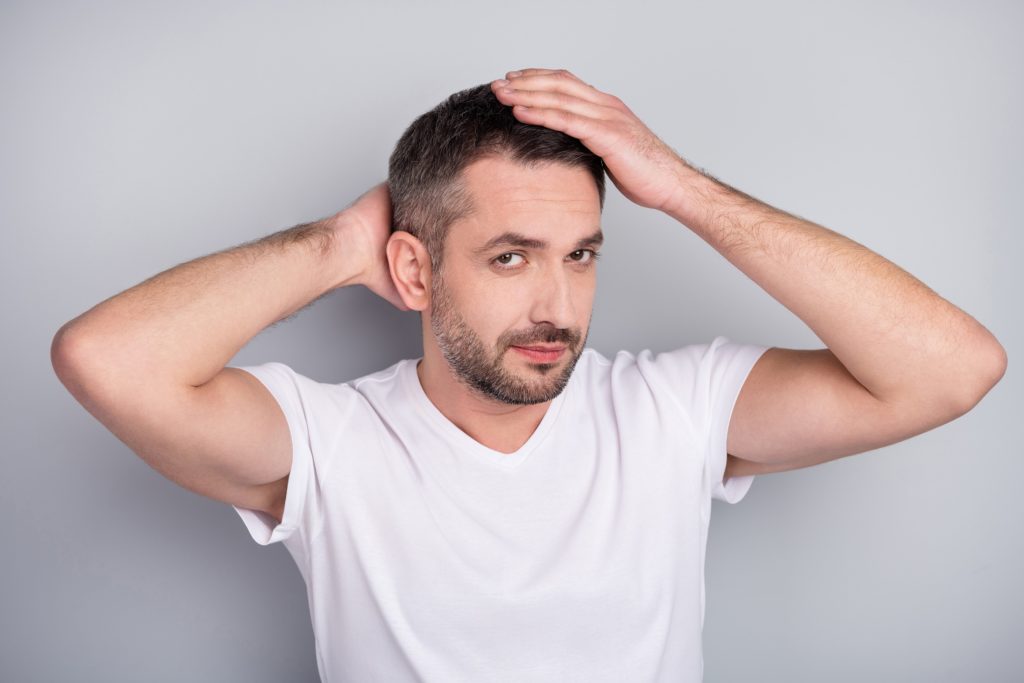
Do laser caps grow hair?
As previously mentioned, Kiierr’s laser caps use low level light therapy and medical grade laser diodes in the laser caps. This treatment method is also known as cold laser therapy. Here are some of the benefits that this treatment can offer:
1.) Pain-Free
2.) Non-Invasive
3.) No known negative side effects
4.) Clinically proven to regrow hair thicker and fuller
5.) Clinically proven to combat hair loss on the scalp
Hair Growing Laser Cap and FDA Clearance

The FDA, also known as the Food and Drug Administration, is responsible for protecting and promoting the public’s health through control and supervision. They are in charge of clearing products that have gone through extensive testing and research to prove that laser caps are functional and safe for human use.
All products in this hair growth industry must have FDA-clearance before they can be sold on the market to customers. This clearance is validity that these medical devices are both safe and effective to use.
Who is an Ideal Candidate for Laser Hair Growth Cap?
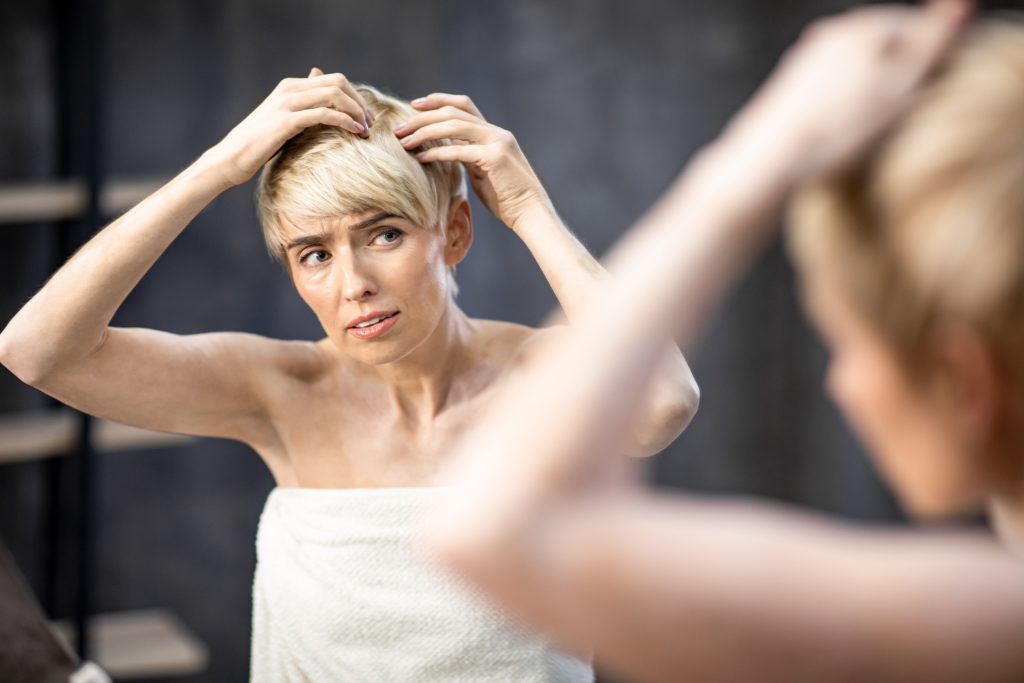
Ideal candidates for a laser hair growth cap are those that are experiencing any form of hair thinning or hair loss, or those individuals looking to improve the overall health of your hair. Your hair does not have to be a specific length in order to “qualify” for a laser hair growth cap. However, if balding, it is important that there is at least peach fuzz in the area that you are looking to regrow.
If you are looking to strengthen and improve the health of your existing hair follicles, a laser cap can also help you! Low level light therapy can also strengthen and thicken the existing hair follicle strands on the scalp.
Can Both Men and Women Use a Laser Cap for Hair Loss?
Yes. Laser caps are FDA-cleared for safe, effective use in both men and women ages 18 and older. As further proof, you’ll see countless testimonials and before/after images from both men & women while researching laser cap companies like Kiierr.
How Soon Are Results From Laser Caps Seen?
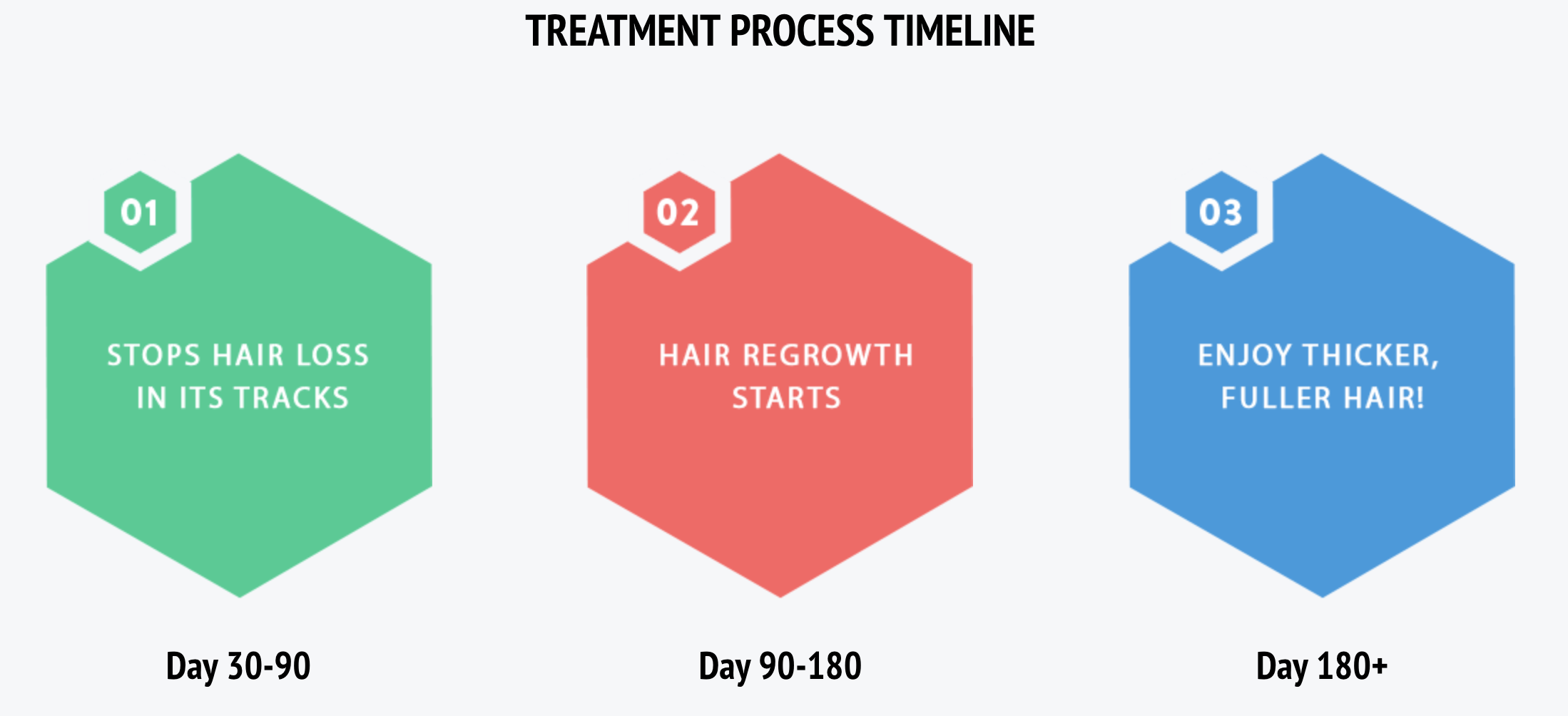
Results vary depending on the degree of hair loss when you begin. Hair growth starts at the cellular level. For example, the majority of users after using the Kiierr272Premier Cap as directed typically report visible changes in four to five months. Hair can become noticeably thicker, fuller and healthier in approximately six months in most cases.
Laser Cap Reviews
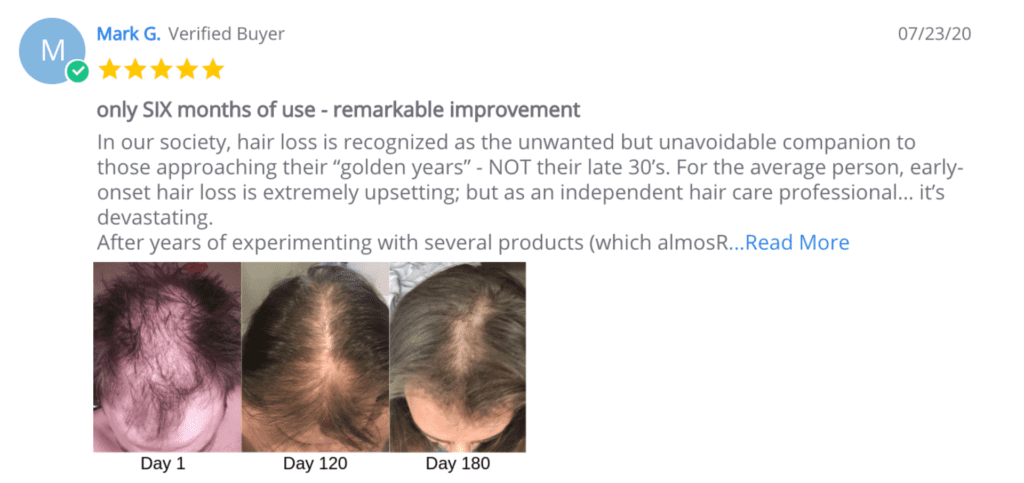
Laser cap reviews are a helpful way for you to help make your decision on whether this medical device can help you combat your hair loss condition. Kiierr has over two-hundred 5 star laser cap reviews from individual who have seen hair growth success with religiously using the products.
Here are Kiierr’s laser cap reviews for you to check out for yourself. You will not believe some of the hair transformations that our customers have seen after months of using the Kiierr laser cap.
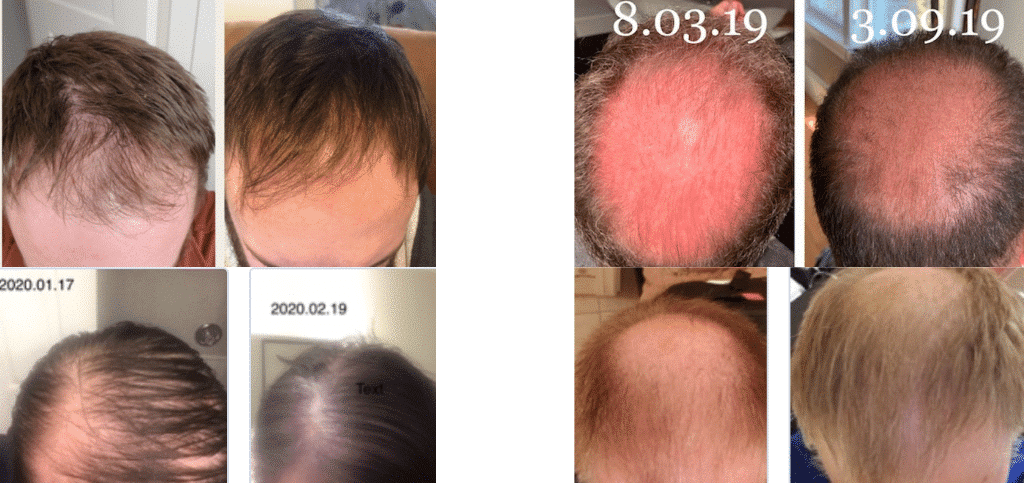
Kiierr Laser Cap for Hair Growth Specifications

Kiierr laser caps use nothing but medical grade laser diodes to emit low level light therapy. This can also be referred to as cold laser therapy because the lasers are not actually producing heat on the scalp throughout treatment. This makes treatment more comfortable and does not allow the scalp to get too hot while completing the hair growth therapy.
Medical grade laser diodes are said to be more effective than LEDs because they have the ability to penetrate the scalp tissue deep enough to stimulate the hair follicles. As you no know, the ideal wavelength for LLLT therapy for safe and effective hair growth is 650 nm. That is exactly the wavelength output that Kiierr’s caps are equipped with. They also have a total power output of 1360 mW.
Read More: Kiierr Laser Science
Summary: Do Laser Hair Caps Work for Hair Loss? Yes.
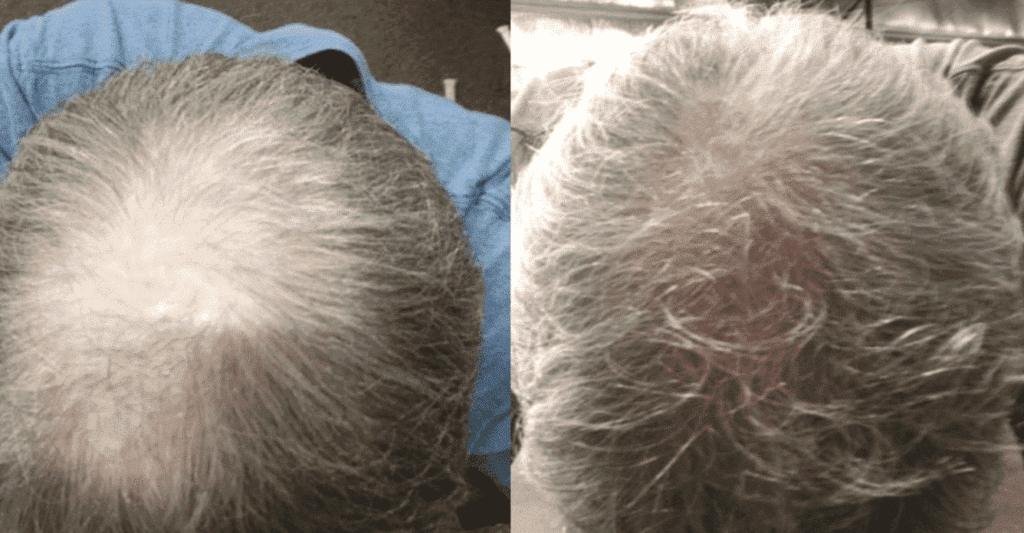
Do laser caps work to regrow hair? The answer is YES. Science has proved that laser caps do indeed work. With the help of LLLT, laser caps have shaped the hair growth industry. They have effectively grown back thicker and healthier hair for individuals battling hair loss.
If you are looking for an affordable, non-invasive hair loss treatment, laser hair growth caps are your answer. Don’t struggle with hair thinning any longer! Start your hair growth journey today with the most convenient technology and laser hair devices in the world.
Additional Laser Cap Clinical Studies Further Proof They Do Work (for both females & males)
The growth of human scalp hair in females using visible red light laser and LED sources – https://www.ncbi.nlm.nih.gov/pmc/articles/PMC4265291/
The growth of human scalp hair mediated by visible red light laser and LED sources in males – https://pubmed.ncbi.nlm.nih.gov/24078483/
Laser Cap FAQs
Do laser caps really work?
YES. Laser hair caps have been scientifically and effectively proven to grow hair on the scalps of men and women.
Are laser hair caps safe?
Laser hair caps are FDA-cleared medical devices. There are no known side effects from using LLLT treatment.
Does the laser cap regrow hair?
Yes, laser caps regrow hair on the scalps of men and women. These caps are used every other day and new growth can be visually noticeable in as little as 12 weeks.
Can hair grow back after thinning?
Yes. With the help of laser caps and LLLT technology, hair can grow back thicker and healthier after thinning.
Additional sources used:
https://www.ncbi.nlm.nih.gov/pmc/articles/PMC3944668/

